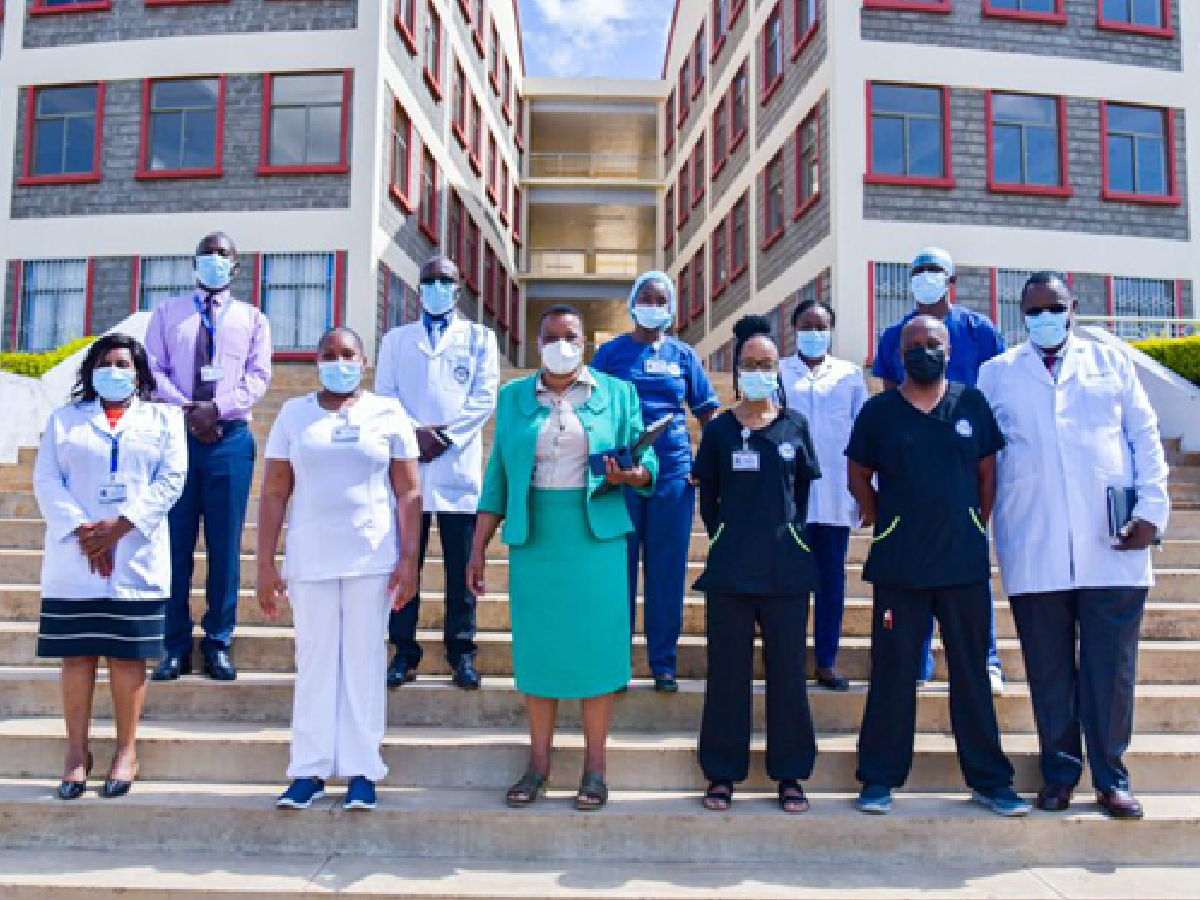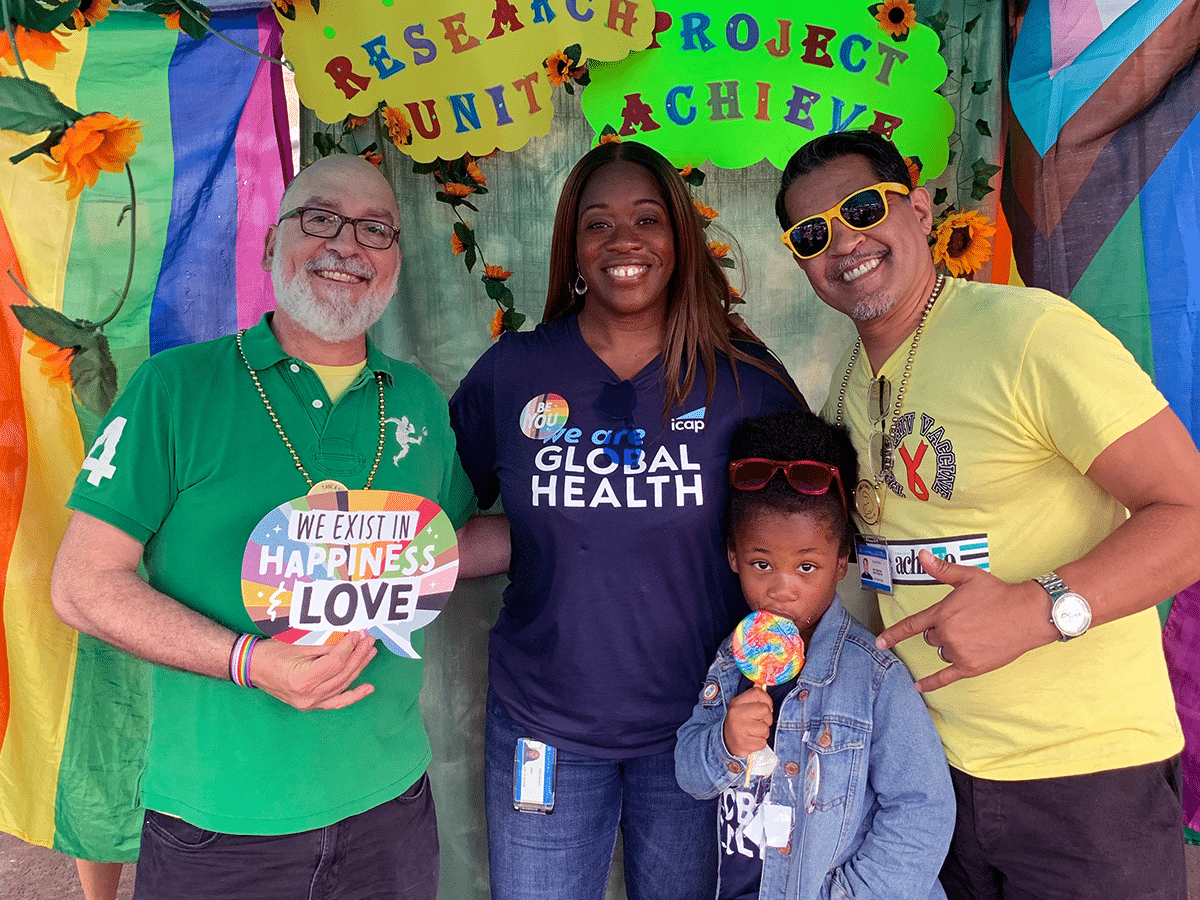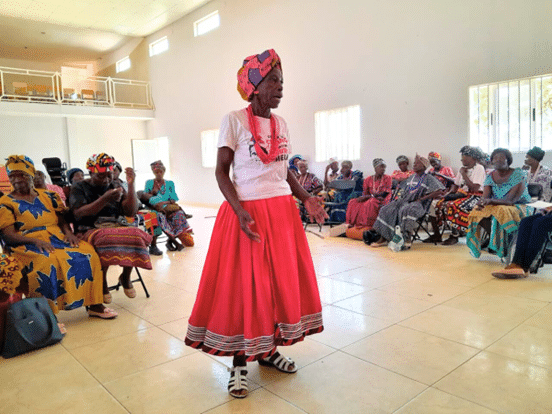In direct support of national efforts to build Kenya’s capacity to prevent, detect, and respond to infections disease threats, ICAP is spearheading efforts at two high-capacity hospitals in Kenya –Kenyatta University Teaching, Referral & Research Hospital (KUTRRH) and MP Shah Hospital – to increase knowledge in infection prevention and control (IPC) through an e-learning campaign for clinicians.
“ICAP’s work to increase completion of virtual IPC trainings among our staff here at KUTRRH is an important step in ensuring that our health workers have the expertise that they need to create a safer health care environment for patients and providers alike,” said Prof. Wangari Mwai, training director at KUTRRH.
Dr. Victor Njom, CEO of KUTRHH, reiterated the importance of the training not only amid the current COVID-19 pandemic, but also as Kenya looks to the future: “We at KUTRRH are proud of our efforts, together with ICAP, to empower frontline health workers with the information that they need in order to more quickly respond to and control emerging threats to public health in Kenya.”
Through peer networks and hospital communication channels, ICAP’s training experts crafted a series of clinician touchpoints at each site to nudge clinicians toward module completion. Additionally, ICAP also publicly celebrated all graduates in small ceremonies where each clinician who completed the course received a certificate of completion. Thanks to the ICAP-led campaign, 62 clinical staff at KUTRRH have completed the training as of April 12, 2021. Efforts at MP Shah Hospital have just started and are on track for completion in 2021.
“Health workers who are trained to prevent and control infections are able to protect themselves and to respond to emerging threats to public health in the communities they serve,” said Prof. Olive Mugenda, chairperson of KUTRHH’s board. “By promoting these critical trainings in IPC practices, KUTRRH and ICAP are continuing our longstanding partnership to prevent, detect, and respond to infections disease threats in Kenya.”
The online trainings, which were co-developed by the World Health Organization (WHO), the U.S. Centers for Disease Control and Prevention (CDC), and the University of Washington Global Health eLearning Program, provide a comprehensive overview of IPC skills and knowledge needed to help reduce the spread of health care-associated infections (HAI). Modules cover a range of topics important to effective IPC, including hand hygiene, waste management, transmission-based precautions, and HAI surveillance.
“It is important that all health care workers, both clinical and non-clinical, receive training and supportive resources so that IPC can be implemented at every point of the health care system,” said Caroline Mwangi, IPC focal person at KUTRRH. “We are grateful for the ongoing IPC trainings and the partnership with ICAP, which ensures that our frontline health care workers are equipped with skills and knowledge to care for patients in the COVID-19 context safely.”








